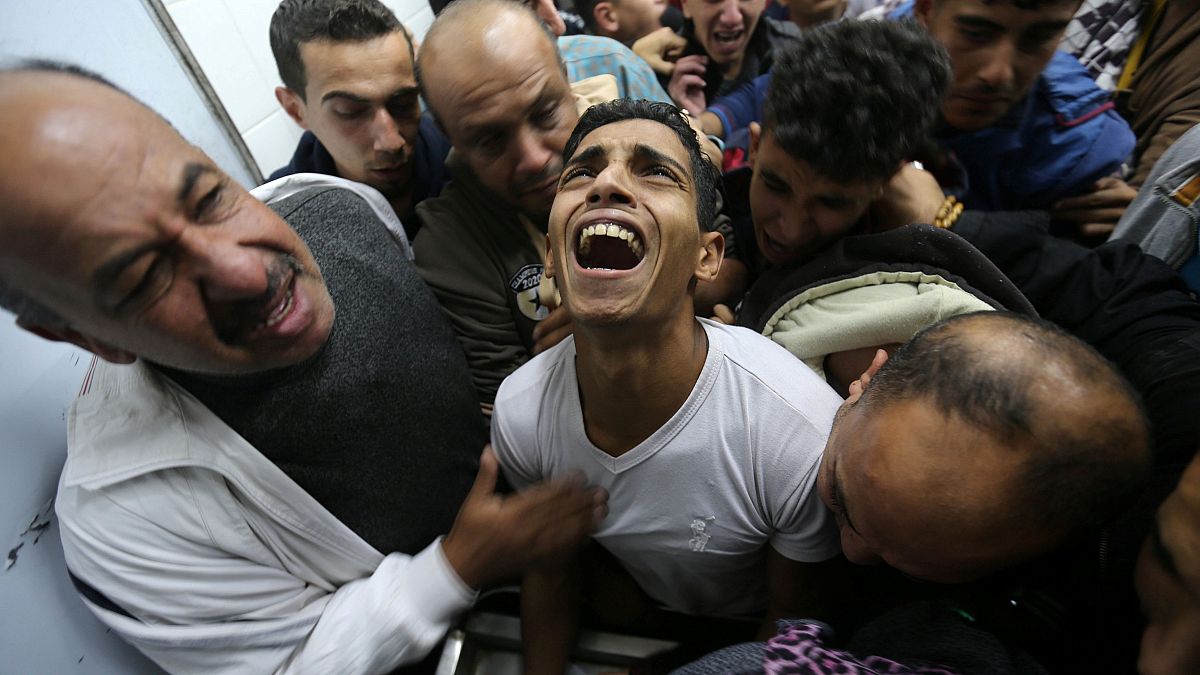The Middle East remains a region that draws the attention of the public because of the many conflicts in the area. According to INFOCORE, a study that investigates the role the media plays in violent
In Israel the press enjoy very good standards of freedom, which is unique in the Middle East.
However, Palestinian and foreign journalists face military censorship and frequent abuses by both the Israeli army and Hamas in Gaza.
Since 2015, Israeli Prime Minister Netanyahu has had a grip over the communications portfolio. This gives him control over the entire media sector. He blocked a bill aimed at reforming a new broadcasting authority, fearing the new body would be critical of the government.
Digital media can guarantee more government transparency and even help change the military’s attitude towards journalists. But Professor Gadi Wolfsfed of theInterdisciplinary Center in Herzliya, says it can also undermine certain sensitive types of negotiations like peace deals.
“The positive of the fact that every citizen’s walking around with a camera”, he explains, “means that, for example, if police or soldiers are beating someone or killing them it could very well be caught on tape and uploaded onto youtube. This changes the whole dynamic of the ability of the authorities to abuse people on the other side.
“However, we must be aware that there are some secrets that governments need to keep. And of course the negotiations in Oslo, that’s why it is called the Oslo peace process, were kept secret. Today it is not sure that it would be possible. In other words there wouldn’t have been secret negotiations because eventually something would have leaked out.”
.
c_baden</a> : <a href="https://twitter.com/hashtag/Conflict?src=hash">#Conflict</a> fatigue: After <a href="https://twitter.com/hashtag/Geneva?src=hash">#Geneva</a> talks fail <a href="https://twitter.com/hashtag/media?src=hash">#media</a> coverage of finalities after <a href="https://twitter.com/hashtag/SyriaCrisis?src=hash">#SyriaCrisis</a> stops. <br> <a href="https://twitter.com/hashtag/infocore?src=hash">#infocore</a> <a href="https://t.co/qedCcmPQpA">pic.twitter.com/qedCcmPQpA</a></p>— Infocore (InfocoreFP7) November 17, 2016
According to the INFOCORE study, as one would expect, the Israeli and Palestinian press are extremely polarized. Hebrew language media tell their audiences one version of the facts, while the Arab media support the opposite narrative.
Meanwhile, the situation in Syria is more complex. Each side in the multifaceted civil war have set up their own media outlet. It is almost impossible for Syrian Citizens to access reliable, independent information and journalists can barely get into the country let alone report effectively on the conflict.
In this context social media have become essential for monitoring what is happening on the ground and sharing information, as Annabelle Van Den Berghe outlined: “The first sign of something going on is often on social media, is often on twitter, is often on Facebook, and it is also often on WhatsApp – she points out – I am on WhatsApp with several people inside Syria: reporters but also just civilians who are living there and updating me on the situation. Because WhatsApp is a bit safer than Facebook to communicate they often use that to let me know what’s happening, what is going on”.
G. Wolfsfeld: “The media plays a critical role in either making violent conflict worse or promoting its resolution” #Infocore
— Infocore (@InfocoreFP7) November 16, 2016


